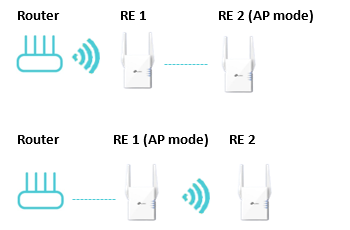Can A WiFi Booster Be Hacked?
A WiFi booster is a device that amplifies an existing wireless signal to increase the range and strength of the WiFi network. As with most electronic devices, it is possible for a WiFi booster to be hacked. The strength of the security of a WiFi booster depends on the security settings and protocols that are in place. If a hacker is able to gain access to a WiFi booster, they can access the network and gain access to any data that is shared on the network, including personal data. It is important to keep WiFi booster security settings up-to-date and use strong passwords to ensure that your network is secure.
What is a WiFi Booster?
A WiFi booster is a device designed to improve the signal strength of an existing wireless network. It is especially beneficial for homes and businesses with an inadequate WiFi signal due to distance or walls. It can be used to extend the range of a wireless network, allowing users to access the internet from multiple rooms. WiFi boosters are easy to install and require no additional cables or wires. With a few simple steps, you can increase the signal strength of your WiFi network in no time.
However, with the convenience of WiFi boosters comes a certain level of risk. The device is connected to your existing network and as such, it’s vulnerable to hacking attempts. Many of these devices are not equipped with proper security measures, leaving them open to potential attacks from malicious hackers. So, can a WiFi booster be hacked? The answer is yes, if the proper security measures aren’t taken. To protect your network from potential threats, it is important to properly configure your WiFi booster and use a strong encryption protocol.
Potential Risks of Having a WiFi Booster
WiFi boosters are becoming increasingly popular as more and more people are realizing the immense benefits they offer to improve their home or business’s internet connection. However, while they can certainly be incredibly useful, it’s important to be aware of the potential risks associated with having a WiFi booster.
Because of the way they work, WiFi boosters create a secondary network that is connected to your main one. This secondary network can be accessed by anyone within range, making it vulnerable to potential hacking and other malicious activities. If someone is able to gain access to your WiFi booster, they could potentially gain access to all of the data stored on your main network, as well as any personal information, passwords, or other sensitive data that you have stored.
In addition, certain types of WiFi boosters have been known to interfere with other networks in the area, either disrupting their connection or even allowing the hacker to access their data as well. This means that even if you have taken steps to secure your own network, you still could be at risk of having your data accessed by someone else.
Fortunately, there are several ways you can protect yourself from these risks. First, make sure that your WiFi booster is properly secured, using strong passwords and encryption protocols. You should also use a firewall to protect your main network, and make sure that you are using the latest version of the WiFi booster’s software. Finally, be sure to take regular backups of your data, so that if your system is ever compromised, you’ll still have a copy of your data stored safely elsewhere.
How Can a WiFi Booster Be Hacked?
The security of your home network is of paramount importance, especially when it comes to wireless boosters. A WiFi booster is a device that amplifies the signal from your router, giving you a stronger, more reliable connection. Unfortunately, these devices can also be vulnerable to hacking. Hackers can access your network if the device is not properly secured, allowing them to capture data, hijack your connection, or even manipulate settings. It’s important to understand how a WiFi booster can be hacked, so you can protect your network from malicious attacks.
Most WiFi boosters have basic security measures in place, such as encryption and authentication, but these can be bypassed if the hacker knows the encryption key or password. Hackers can also use spoofing attacks to gain access to your network, pretending to be a legitimate user and exploiting any weaknesses in your system. They can also use brute-force attacks to gain access, which involves using automated tools to guess the password until they get it right.
To protect your network from hackers, it’s important to use strong encryption and authentication measures with your WiFi booster. Additionally, you should update the firmware regularly to ensure that any security vulnerabilities are patched. It’s also a good idea to use a firewall to block any suspicious or malicious traffic, and to regularly monitor your network for any suspicious activity. By following these simple steps, you can help ensure that your WiFi booster is secure and protected from malicious attacks.

Steps to Improve the Security of a WiFi Booster
WiFi boosters are becoming increasingly popular as they provide stronger, more reliable signals throughout the home. However, many people worry that such devices can be hacked, leaving them vulnerable to cyber attacks. Fortunately, there are a few steps you can take to improve the security of your WiFi booster and protect you from potential hacking attempts.
The first step is to ensure that you are using a secure WiFi network. Make sure that you have changed the default password and that you are using WPA2 encryption to protect your data. You should also consider setting up a guest network for visitors or other devices that don’t need access to your main network.
The second step is to keep your WiFi booster up-to-date. Many manufacturers release periodic updates that include security patches and bug fixes. Make sure to regularly check for and install updates to ensure that your device is always running the latest version.
The third step is to ensure that your router is placed securely. WiFi boosters can be vulnerable to physical tampering, so make sure that your device is in a secure location and not in direct line of sight from the outside world.
Finally, consider using a virtual private network (VPN). A VPN will encrypt all of your data and prevent hackers from intercepting it as it travels over the air. This is an especially good idea if you are connecting to public WiFi hotspots or other public networks that may not be secure.
By following these steps, you can help ensure that your WiFi booster is secure and protected from potential hacking attempts.
Tips for Preventing a WiFi Booster from Being Hacked
WiFi boosters are a great way to extend your home network’s range, but they can also leave your network and data vulnerable to hacking. To safeguard your personal information and protect yourself from a potential hack, it’s important to take the necessary precautions. Here are some tips for preventing a WiFi booster from being hacked:
1. Change the default password: The default password on most WiFi boosters is too easy to guess, so it’s important to change it as soon as possible. Use a combination of numbers, letters, and symbols to create a password that is difficult to guess.
2. Update the firmware regularly: Most WiFi boosters come with an automatic update feature, so make sure to enable it and keep checking for updates. Doing so will ensure that the device is running the most secure version of firmware, which will help prevent a potential hack.
3. Disable remote access: Many WiFi boosters allow you to access your network remotely, but this can also leave your device vulnerable to an attack. To prevent this, make sure to disable remote access.
4. Secure your router: The router is the gateway to your home network, so it’s important to keep it secure. Make sure to use a strong password, regularly update the firmware, and enable encryption.
By taking these simple steps, you can ensure that your WiFi booster is secure and protected from potential hacks.
Common Misconceptions About WiFi Booster Security
When it comes to WiFi booster security, there are several common misconceptions that can lead to a false sense of security. A WiFi booster is an electronic device that connects to a router and amplifies the signal of the existing WiFi network. Unfortunately, due to its nature, it is vulnerable to hacking attempts.
One of the most common misconceptions is that a WiFi booster is “self-secured”. This is not the case. While a WiFi booster may come with a certain level of encryption, it is not enough to protect your network from a determined hacker. The same is true for the router.
Another misconception about WiFi booster security is that a wired connection is more secure than a wireless one. While a wired connection is typically more secure than a wireless one, a hacker can still breach the security of a wired connection by using techniques such as port scanning or brute-force attacks. Thus, it is important to ensure that your WiFi booster and router are properly configured and secured.
Finally, another misconception is that a WiFi booster will protect your network from malicious attacks. While a WiFi booster can help extend the reach of your network, it is not designed to protect against malicious attacks. To keep your network secure, it is important to use a secure wireless protocol (such as WPA2 or WPA3) and enable other security measures such as firewalls, anti-virus software, and strong passwords.
In conclusion, it is important to understand the misconceptions about WiFi booster security and take the necessary steps to protect your network. By properly configuring and securing your router and WiFi booster, you can reduce the risk of your network being hacked.
FAQs About the Can A WiFi Booster Be Hacked?
Q1: Is it possible to hack a WiFi booster?
A1: Yes, it is possible to hack a WiFi booster if it is not properly secured. It is important to ensure that your WiFi booster is using the latest security protocols and is regularly updated to keep it secure from potential hackers.
Q2: How do I know if my WiFi booster is secure?
A2: You should check the manufacturer’s website to make sure the device is up-to-date with the latest security measures. Additionally, you should make sure to implement strong passwords and use a secure network name to help protect your device from potential hackers.
Q3: What can I do to protect my WiFi booster from getting hacked?
A3: It is important to make sure your WiFi booster is always up-to-date with the latest security protocols and regularly check for any firmware updates. Additionally, you should implement strong passwords and use a secure network name to help protect your device from potential hackers.
Conclusion
In conclusion, it is possible for a WiFi booster to be hacked, however it is not a common occurrence. While there is no guaranteed way to completely protect yourself from a potential hacker, there are steps you can take to reduce the risk such as enabling strong encryption and using a secure password. Additionally, keeping your software up-to-date and monitoring your network for suspicious activity can also help.


